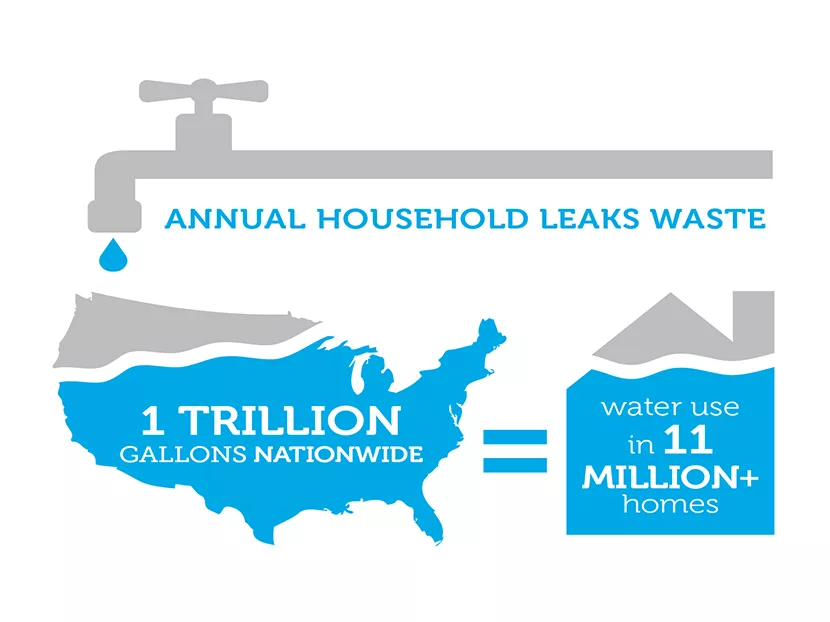A partner of the Environmental Protection Agency’s WaterSense since the program’s inception in 2006, the Plumbing-Heating-Cooling Contractors—National Association (encourages all plumbing professionals to educate consumers on how to check for leaks and save water and money. The EPA’s annual Fix-a-Leak Week – which, this year, is March 18-24 – is a prime opportunity to spread awareness that household leaks can waste nearly 1 trillion gallons of water annually nationwide.
“In serving the plumbing and HVACR industry, PHCC is dedicated to the health, safety and comfort of society and the protection of the environment,” says PHCC President Ken Nielsen. “Of course, a huge part of that is supporting the responsible use of natural resources, which is why we’re always proud to partner with EPA’s WaterSense program."
Bringing this nationwide issue to the consumer level, the EPA claims that the average household’s leaks can account for nearly 10,000 gallons of water wasted every year, and 10 percent of homes have leaks that waste 90 gallons or more per day. Common types of leaks found in the home are worn toilet flappers, dripping faucets and other leaking valves. These types of leaks are often easy to fix and can save homeowners about 10 percent on their water bills.
During Fix-a-Leak Week, PHCC encourages all plumbing professionals to engage in activities – from family fun runs to leak detection contests to WaterSense demonstrations – that can help consumers find and fix leaks in their homes and businesses. A host of ideas and resources are available at www.epa.gov/watersense/fix-leak-week.
As a WaterSense program partner, PHCC strives to give members and other plumbing professionals easy access to resources like these so that they can properly educate their customers. Says Nielsen: “It’s a win for their customers; it’s a win for them, positioning them as contractors of choice and good stewards in their communities; and it’s a win for the environment.”





